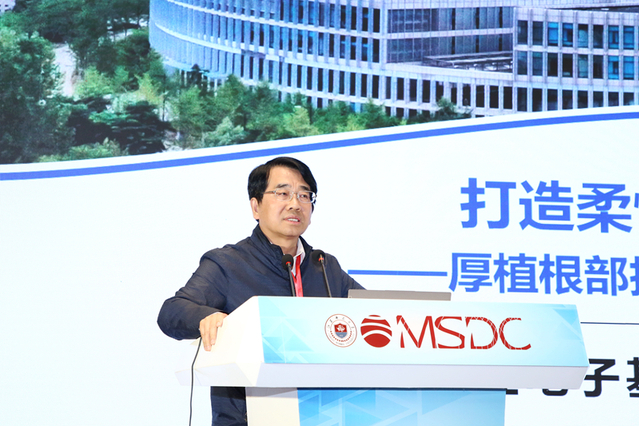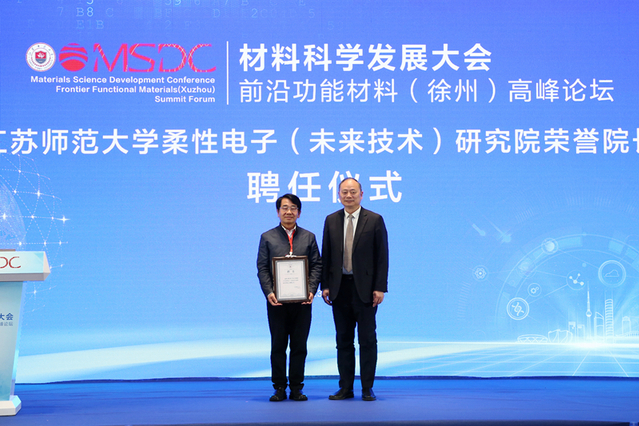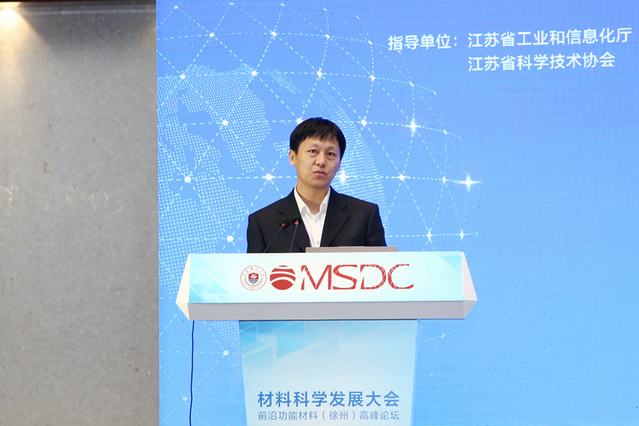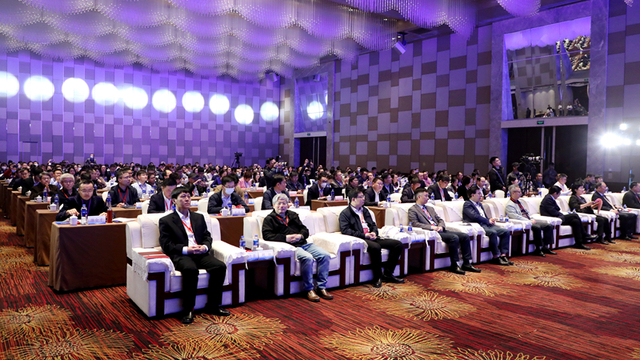To further promote academic prosperity, technological innovation and industrial development in the field of functional materials, strengthen the deep integration of production, learning, research and application, deeply exchange innovative scientific and technological achievements in the field of functional materials, and promote the cross-integration and innovative development of chemistry, physics, optics and biology etc. and materials disciplines in JSNU (Jiangsu Normal University), BMEMat (Biomedical Engineering Materials) and Jiangsu Material Research Society jointly held the “Materials Science Development Conference -- Frontier Functional Materials (Xuzhou) Summit Forum” from April 21st to 23nd, 2023. The theme of it was “promoting the intersection of disciplines, deepening academic exchanges, and pushing forward breakthroughs and development in the field of functional materials”. It revolved around the cutting-edge functional materials with multi-disciplinary characteristics, such as optoelectronic materials, biomaterials, quantum materials, energy materials, chemical materials etc. Three academicians, Huang Wei, Gu Ning and Zhang Hua, more than 100 high-level talents in related fields, as well as more than 300 experts and scholars gathered together to share the latest research results and discussed future development direction of cutting-edge functional materials.
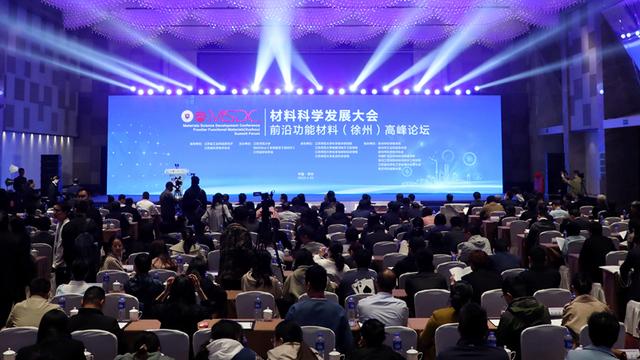
On the morning of April 22nd, the opening ceremony was grandly held. Gong Weifang, Deputy Mayor of Xuzhou Municipal People’s Government, Ma Xiaoping, a second class inspector of Industry and Information Technology Department of Jiangsu, Feng Shaodong, vice chairman of Jiangsu Association for Science and Technology, Fang Zhong, Secretary of the CPC JSNU Committee, and other leaders attended and delivered speeches. Deputy Director of Suzhou Institute of Nanotechnology, Chinese Academy of Sciences, Wang Qiangbin, Deputy Director of Institute of Semiconductors, Chinese Academy of Sciences, Xue Chunlai, Professor of Nanjing University, Hu Zheng, a researcher of Institute of Physics, Chinese Academy of Sciences, Liu Wuming, Vice President of JSNU, Dong Xiaochen and other leaders attended the opening ceremony. More than 400 experts, scholars, representatives of teachers and students from scientific research institutions (institutes) across the country, representatives of government departments and business circles in related fields participated in the event. The opening ceremony was presided over by President Zhou Ruguang.
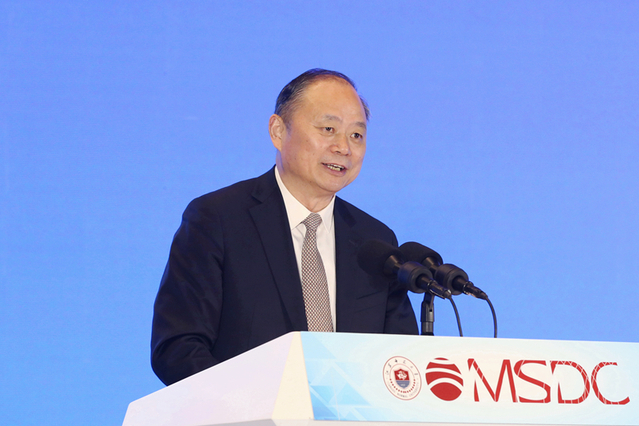
Fang Zhong expressed that cutting-edge functional new material is the cornerstone and forerunner of modern high-tech and emerging industries. Strategic and leading new material is of great significance to the country’s strategic emerging industries and the development of future technology. As one of the five disciplines of JSNU that enter the top 1% of ESI, materials science is a first-class undergraduate major construction site in Jiangsu Province. After years of high-quality development, a group of outstanding scientific research forces have gathered, forming characteristic research fields such as optoelectronic functional materials, biological functional materials, quantum functional materials and new energy materials etc. In recent years, JSNU has published more than 40 papers in international top journals such as Nature and Nat.Commun, obtained more than 100 invention patents, and approved more than 40 national-level research projects of National Key R&D Program of China and National Natural Science Foundation of China. In order to advance the research in the field of cutting-edge functional new material, JSNU decides to establish the Flexible Electronics (Future Technology) Research Institute with Academician Huang Wei as the honorary President. Fang Zhong hoped that the forum can make new and greater contributions to actively promote the development of frontier functional materials as an opportunity.
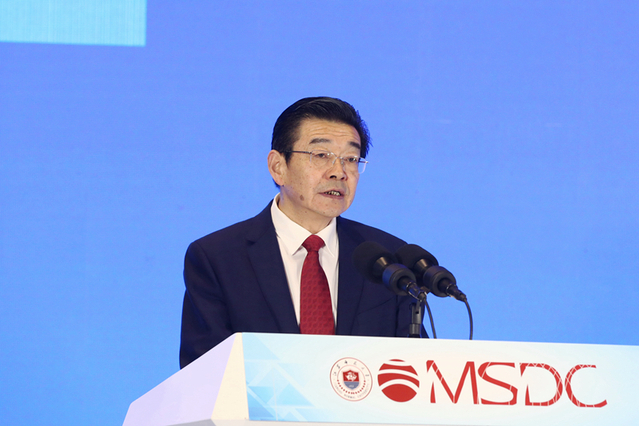
Ma Xiaoping expressed in his speech that as the forerunner of the material industry, new materials support and guarantee technological innovation, transformation and upgrading of traditional industries, and national security. Developing new material industry is a necessary requirement for China to transform from a major manufacturer to a country strong in manufacturing. Relying on its strong foundation for the development of the manufacturing industry, in the field of new material, Jiangsu has gradually developed into one of the regions with the best industry foundation, the strongest comprehensive competitiveness and the highest concentration in the country. The conference for the material science is also a grand event guided by academic research, gathering different resources, and empowering the high-quality development of the material industry in Xuzhou and Jiangsu province. It’s an opportunity to further establish and improve the system and mechanism of joint innovation and collaborative development between universities and localities, do well in industry guidance and industry-university-research collaboration, and further demonstrate that universities and social organizations are expert think tanks, talent highlands, scientific research centers and technology bridge. Accordingly, energy conservation, carbon reduction, intellectualized reconstruction and digital transformation of new material industry will be promoted, and the industry will achieve sound and sustainable development.
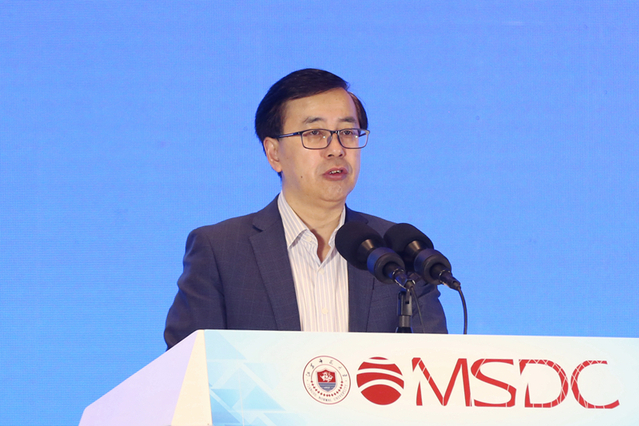
Feng Shaodong pointed out in his speech that material science is core to manufacturing, and new material is a national strategic emerging industry. Jiangsu Provincial Association for Science and Technology has thoroughly implemented the deploy requirements with the goal of building an innovative province, striving to create a national and regional science and technology innovation center and talent highland. At the same time, the Association highlights the main responsibility of bridges, focuses on the “four services”, and plays an open, pivotal and platform-type role in promoting the deep integration of technology and economy to serve the innovation and development of local industries. He hopes that the participating experts will take the forum as an opportunity to explore the frontiers of technology, deal with difficult problems in the field of materials, and get a jump on the other industries. Jiangsu Provincial Association for Science and Technology will continue to support the scientific and technological innovation and development of Jiangsu Materials Research Society, JSNU and Xuzhou. Especially, it will provide assistance in resource integration, talent introduction, government-industry-university-research collaboration, etc., and contribute more wisdom and technological power to high-quality development.
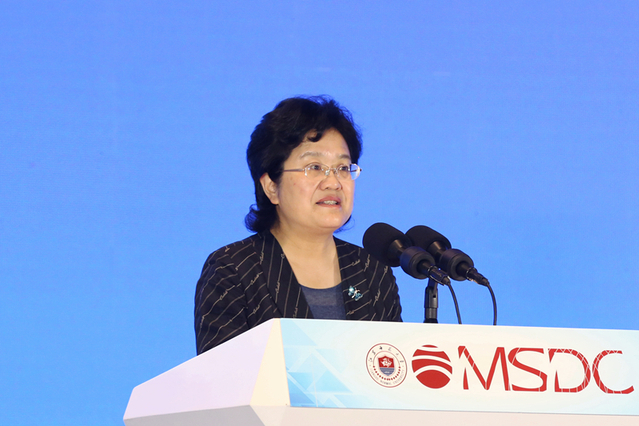
Gong Weifang extended a warm welcome to the experts and scholars from all over the country and introduced Xuzhou’s economic and social development. She pointed out that the material industry is the foundation for developing high-end manufacturing industry and the prerequisite for independent and controllable industrial and supply chain. As the most popular cutting-edge discipline in material science, functional materials is the key force to meet the major national strategic needs and promote the development of high-tech industries. In recent years, Xuzhou has focused on cultivating “three four three” innovative industry clusters, which is to create three advantageous and innovative industrial clusters in engineering machinery, green and low-carbon energy and new materials, accelerate four emerging and innovative industrial clusters in digital economy, integrated circuits and ICT, medicine and health, and safety and emergency response, and upgrade three distinctive and innovative industrial clusters in premium steel, high-end textiles, and food and agricultural product processing. The new material industry has been put on the list of the three advantageous innovative industrial clusters and Xuzhou municipal government has focused on the subdivision field of new materials to promote industrial transformation and upgrading, forming a distinctive new material industry system and providing strong support for high-quality development of the industrial economy. The forum brought new concepts, technologies, achievements, and applications in functional materials, gathered efforts to solve the bottleneck problems in technological innovation and explored future development directions, serving as a top academic event in the industry. It will effectively promote the academic prosperity, technological innovation, and industrial development of functional materials, and provide new opportunities for the development of Xuzhou’s new material industry cluster. Gong hoped that JSNU could take the forum and the construction of the Flexible Electronics Research Institute as an opportunity to work with experts and scholars in deepening talent cultivation, scientific research and achievement transformation, so as to jointly create a batch of new highlights and new brands. She earnestly hoped that leaders and experts will continue to support the construction of the university, guide the innovative development of Xuzhou’s new material industry clusters, and provide more policies, enterprises, talents, and technologies to jointly open a new chapter in the development of cutting-edge functional materials.

At the opening ceremony, Gong Weifang and Fang Zhong jointly unveiled the plaque for the Flexible Electronics (Future Technology) Research Institute. The establishment of the research institute marks a new development and breakthrough for our university in the research of flexible electronics and new materials. Liu Hong, editor-in-chief of BMEMat, one of the organizers of the forum, also made a journal recommendation on the opening ceremony.
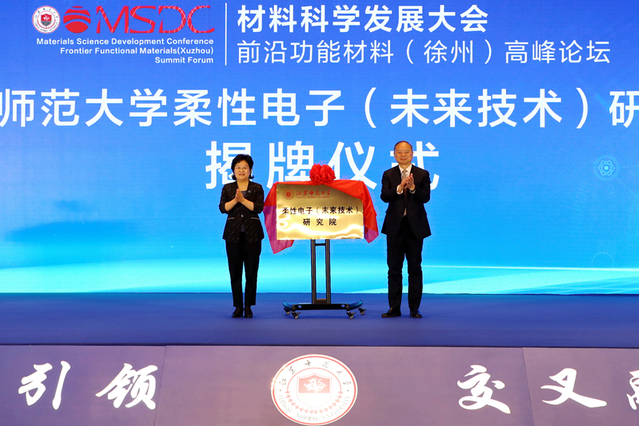

Later, Professor Zhang Hua, a foreign fellow of European Academy of Sciences and a professor from the City University of Hong Kong, delivered the keynote speech titled Phase Engineering of Nanomaterials (PEN). Professor Hu Zheng from Nanjing University and Researcher Liu Wuming from the Institute of Physics of the Chinese Academy of Sciences respectively delivered the thematic reports titled Past, Present, and Future of Carbon Nanocages and Topological and Non-Hermitian Quantum States.
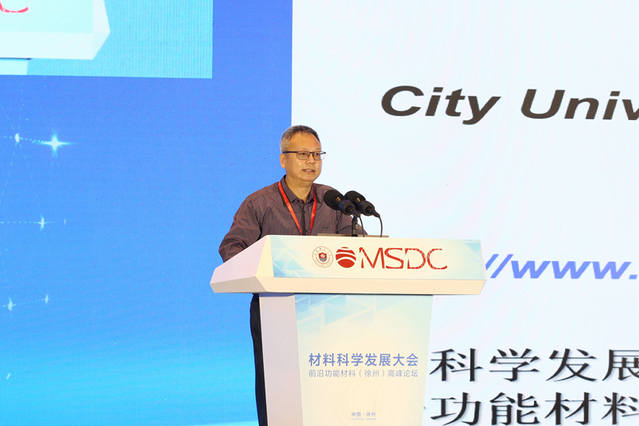
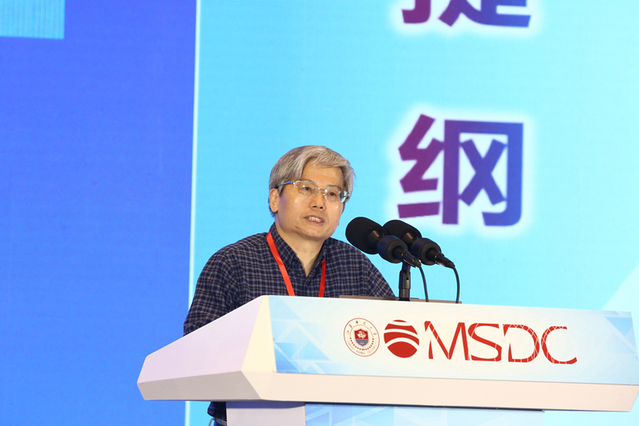

In the following two days of the forum, the conference set up six sub-forums focusing on 10 specialized topics including nano-biomaterials, biological detection, sensing and imaging, tissue engineering and regenerative medicine, drug delivery and immunotherapy, quantum functional materials, semiconductor materials and devices, low-dimensional optoelectronic materials and devices, laser and nonlinear optical materials, synthetic methodology, energy and environmental materials. Over 160 reports were held where renowned experts and scholars including Academician Gu Ning from Nanjing University, Vice President of Nanjing University of Posts and Telecommunications, Professor Wang Lianhui, President of Gannan Normal University, Professor Chen Yiwang, Dean of the Institute of Advanced Technology at Tongji University, Professor Wang Zhanshan, Director of Development Planning Department at East China Normal University, Professor Duan Chungang, and Dean of the School of Physics at Beijing Institute of Technology, Professor Yao Yugui delivered reports and focused on cutting-edge issues in their relevant fields, exchanging and discussing innovative achievements in the field of material science.
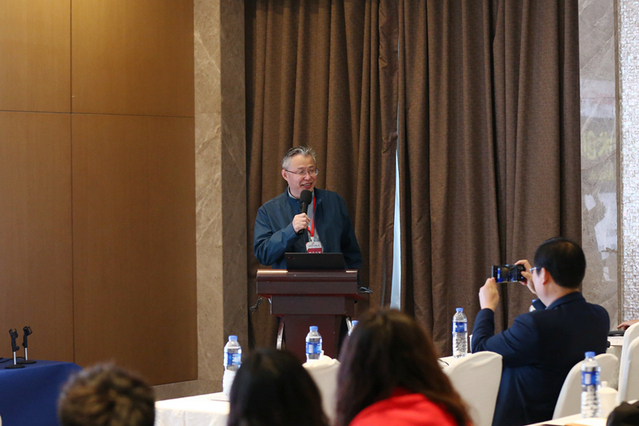
On the afternoon of April 23th, the forum came to a successful end. Professor Huang Wei, an academician of the Chinese Academy of Sciences, a professor from Northwestern Polytechnical University, delivered the keynote speech at the closing ceremony. Fang Zhong, Secretary of the CPC JSNU Committee, presented Professor Huang with a letter of appointment as the Honorary Dean of the Research Institute of Flexible Electronics (Future Technology) at JSNU. Vice President Dong Xiaochen delivered a summary report on the forum. He said that this forum was a great success and was significant for refining research directions, integrating high-quality resources, promoting the construction of the discipline, scientific research, and industrial development in material science. He hoped that the forum would be an opportunity for domestic and foreign experts and scholars to strengthen communication and work together to promote high-quality development.
